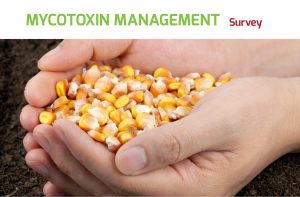


Mycotoxins are secondary metabolites of molds that have adverse effects on humans, animals, and crops that result in illnesses and economic losses. The contamination of foods and feeds with mycotoxins is a significant problem worldwide. Aflatoxins, ochratoxins, trichothecenes, zearalenone (ZEN), fumonisins (FUM), tremorgenic toxins, and ergot alkaloids are the mycotoxins of greatest agroeconomic
importance. Some molds are capable of producing more than one mycotoxin and some mycotoxins are produced by more than one fungal species. Mycotoxins have various acute and chronic effects on humans and animals depending on species and susceptibility of an animal within a species.
The economic impact of mycotoxins includes loss of human and animal life, increased health care and veterinary care costs, reduced livestock production, disposal of contaminated foods and feeds, and costs associated with investing in research and applications to reduce severity of the mycotoxin effects (Zain, 2011).
By Radka Borutova, Adisseo